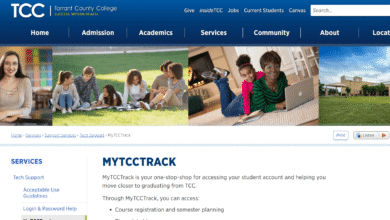The Role of a Tech PR Agency in Humanizing Artificial Intelligence

Artificial intelligence (AI) is no longer a futuristic concept; it is the fundamental force reshaping commerce, healthcare, and daily life. As companies rush to integrate AI models and launch new generative technologies, they face a critical challenge: public perception often swings between utopian potential and dystopian fears. Concerns over data privacy, job displacement, and algorithmic bias dominate headlines, making trust and credibility just as vital as technological capability. To bridge the chasm between complex algorithms and consumer confidence, tech innovators increasingly rely on a specialized tech PR agency to humanize AI and build a transparent narrative around its ethical use.
This strategic communications function is essential because AI, at its core, is technical, but human beings connect with stories and purpose. The modern agency acts as a crucial translator, ensuring that a brand’s AI innovations are perceived as solutions that enhance life, rather than “black boxes” that threaten it.
The Problem of the “Black Box” and the Credibility Gap
The rapid advancement of AI has created a significant credibility gap. According to reports, a high percentage of consumers express skepticism toward AI company claims, highlighting a severe need for measured communication. The public often lacks understanding of how complex algorithms operate, leading to a perception that AI is uncontrollable, opaque, or inherently biased. This lack of transparency is a major threat to corporate reputation.
The core mandate of a specialized communications partner is to address this gap head-on through radical transparency and education. The agency works to simplify highly technical topics, crafting messages that resonate with non-technical audiences—from investors and regulators to end-users and the media. This process focuses on translating technical specifications into tangible, human benefits and actionable ethical commitments.
1. Building Trust Through Ethical Transparency
Trust in AI is built not just on performance, but on clear communication about its development and governance. Companies must publicly showcase their commitment to responsible AI usage, addressing concerns about data and bias before they become crises. The tech PR agency develops proactive communication frameworks centered on ethical principles:
- Disclosure and Honesty: PR professionals advise clients to clearly and unambiguously disclose when and how AI is used in products or communications. For instance, when interacting with an AI chatbot, users should be clearly notified. This transparency is crucial in an age of deepfakes and generative content.
- Bias Mitigation and Fairness: Agencies help clients communicate the steps taken to identify and mitigate potential biases in their AI training data and algorithms. Publishing clear white papers or holding public forums on bias detection positions the brand as a responsible industry player, proactively addressing a major public concern.
- Data Governance: The agency crafts messaging that reassures stakeholders about data protection and privacy compliance. It ensures that communications clearly articulate how customer data is safeguarded, anonymized, and used only to improve the user experience, never compromising private or proprietary information.
2. Strategic Storytelling: From Algorithm to Advantage
Consumers are motivated by real-world applications and emotional resonance, not code. An effective tech PR agency moves the narrative away from the technology itself and toward the human impact it creates.
- Focus on Problem-Solving: PR strategy highlights how AI improves patient outcomes in healthcare, enhances road safety through autonomous features, or empowers small businesses to operate more efficiently. Case studies are detailed, showcasing specific, measurable outcomes—such as cutting client processing time by 40%—to make the technology’s value concrete.
- Thought Leadership: The agency positions company leaders as authoritative, ethical voices in the AI conversation. Through media articles, keynotes, and expert commentary, the firm associates the brand with forward-thinking leadership and responsibility. This narrative ensures the company is seen as a creator of solutions, not a force of disruption.
- Leveraging Earned Media Authority: AI systems themselves increasingly rely on the authority of sources to generate trustworthy consumer answers. When a consumer asks an AI-powered search tool, “Is Brand X worth it?” the response aggregates information from reputable sources. Therefore, securing positive, authoritative earned media coverage in top-tier technology and business publications is paramount, as this coverage feeds directly into the AI-driven evaluation phase of the consumer journey.
3. Crisis Preparedness for AI Mishaps
The inherent complexity of AI systems means they are not infallible. From major data breaches to unintended algorithmic errors, AI companies face unique and rapid-onset crisis scenarios. A tech PR agency provides the necessary resilience infrastructure:
- Predictive PR: Using AI-powered social listening and sentiment analysis, the agency can process millions of data points in real-time to detect spikes in negative public feeling or emerging reputational threats. This predictive capability allows the PR team to preemptively develop clarifying statements and crisis responses, often intervening before a story goes viral.
- Digital First Response: The crisis plan focuses on rapid, transparent digital communication. In the event of an error, the agency guides the company to respond swiftly and empathetically across social channels and dedicated crisis hubs, detailing the technical mistake, outlining the exact steps for resolution, and publicly recommitting to responsible innovation.
- Consistent Messaging: Any crisis response must be unified across all platforms—from a formal press release to an automated chatbot response—to avoid confusion and reinforce accountability, thereby maintaining stakeholder trust.
The PR Professional as the Human Editor
While AI is a powerful tool for efficiency within the PR industry itself—automating media monitoring, audience segmentation, and content drafting—the role of the human professional remains indispensable.
Studies on consumer trust show that emotional, personalized content generated entirely by AI is viewed less favorably than human-authored content. The tech PR agency acts as the crucial editor and strategist, ensuring that AI-generated drafts are refined to align with the brand’s unique voice, infuse genuine empathy, and undergo rigorous human fact-checking for accuracy. This combination of algorithmic efficiency and human ethical judgment is the defining strength of the modern communications partner, ensuring that AI technology is not only innovative but also widely understood, respected, and trusted.



